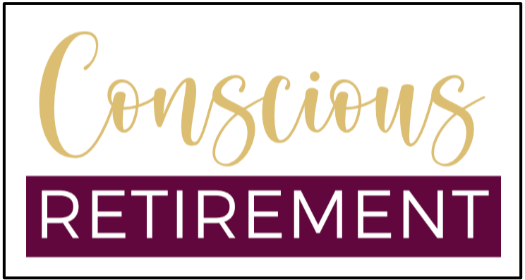Open conversation about retirement in the workplace reduces the stress created by uncertainty and ambiguity about the future for workers and employers alike. When I trained as a mediator the impact of not talking was paramount in the process of building bridges between parties and we had an acronym to describe that impact TNT (Talking/Not Talking). In a word, devastating! I believe this perspective has a place in the development of healthy working relationships.

Retirement is a major life transition that requires much consideration. Some people feel free to talk about their plans, but far more are concerned about how revealing the intention to retire will influence how they are perceived. Questions like will I still get to work on important projects? Or, will I find myself being retired early? arise causing stress that can undermine productivity and well-being. Even those happily looking forward to their retirement have concerns about what it will be like when they get there. Many workers gain their sense of identity and purpose through their work and most of their social connections are work related leading to concerns about how to recreate this in their lives. Talking about it reduces potential stress and provides the opportunity to consider possibilities and the ability to transition into the life they desire.
For business leaders, being aware of employee’s plans around retirement can support the overall well-being of the business. In his article Why You Should Care About Your Employees Retirement Plans by Steve Parrish, a contributor for Forbes.com, caring about employees and working with them as they approach retirement increases the company’s image as a good place to work. Parrish states that “We often talk about plans that ‘recruit, reward and retain’ employees but you should also consider the importance of helping an employee ‘retire’.” Imagine how this could reduce uncertainty and increase morale in the work environment for the person planning retirement as well as those working with them.
As well as supporting a productive and healthy work environment for everyone, awareness of an employee’s retirement plans offers a wealth of knowledge for the business. It has become difficult to predict what workers are planning; people as young as 45 are considering retirement and many older workers would like to continue working well beyond 65. If people can talk about their plans employers can know what to expect and how to best work with their employees. It makes sense to harvest knowledge and wisdom from retiring employees and consider the possibility of continuing to work with valuable individuals as consultants or part-time workers. This information coming from Lynn Unger of People First HR Services offers an interesting take on having these conversations with employees.
https://www.peoplefirsthr.com/2023/08/01/retirement-planning/
She suggests that these conversations should be part of career conversations, no matter the age or stage of the employee’s career. This approach normalizes talking about retirement and increases the company’s ability to provide an attractive and productive work environment and as well as supporting loyal employees as they transition into retirement.
What we offer….
As professional developmental coaches we help people transition through major shifts at any stage of life. Retirement is a major life transition, one that requires thoughtful attention on both the person retiring and the impact of their leaving on the business. Through individual and group coaching we help people consider and begin to create a road map that will support them as they navigate the ongoing challenges of retirement. We also provide coaching for managers and leaders to help them become more capable of having conversations that will support their employees and allow the business to successfully adjust to changes as their employees mature and eventually retire.

0 Comments